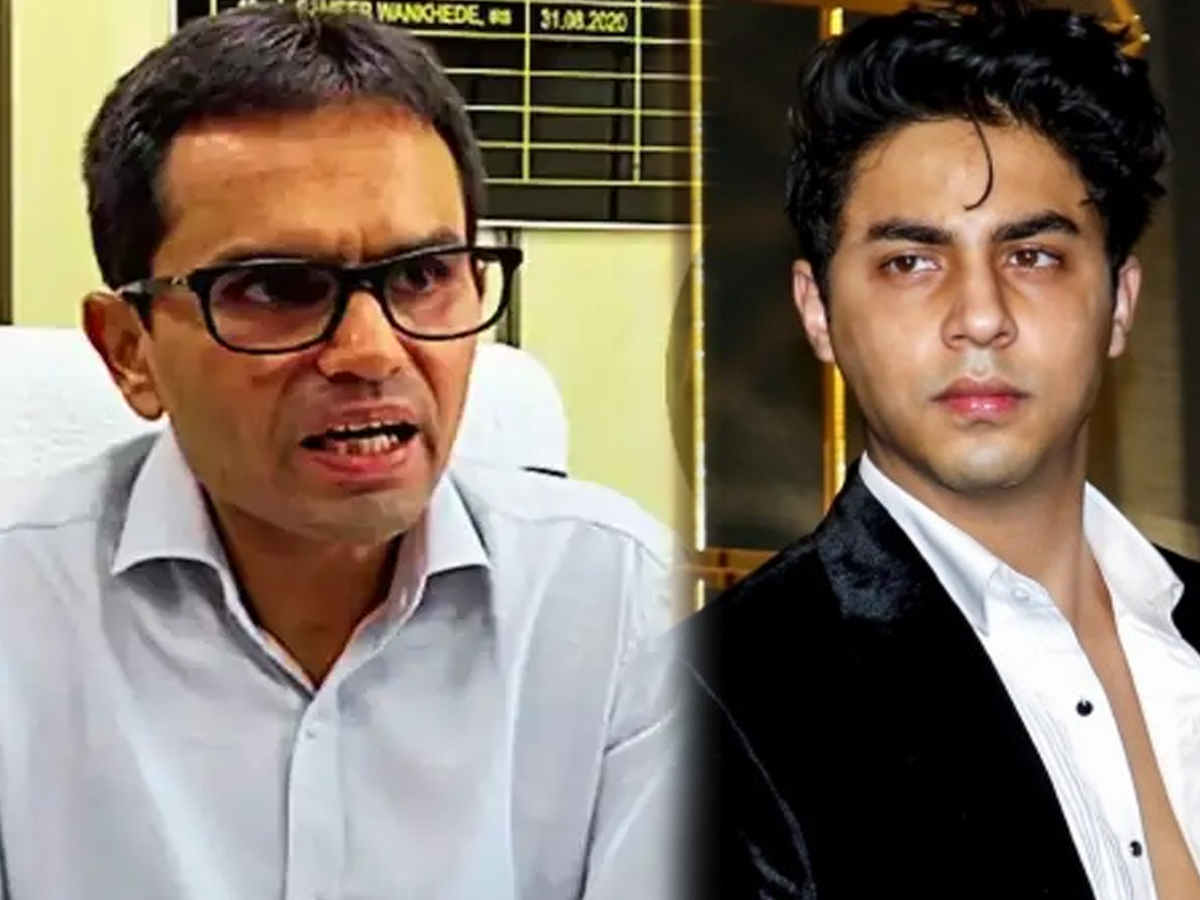
IRS official Sameer Wankhede, who was previously in the limelight for leading high-profile drug cases in Mumbai, is making headlines today for a different kind of battle—this time, in the courtroom. On September 2025, Wankhede had filed a ₹2 crore defamation case against Shah Rukh Khan’s production house Red Chillies Entertainment, global streaming giant Netflix, and others involved in web series The Ba***ds of Bollywood. The case recently drew public attention to the Aryan Khan drug case and raised serious questions regarding creative freedom, reputation, and portrayal of real individuals in fiction.
The Allegations at the Center of the Lawsuit
Wankhede’s complaint, which was filed with the Delhi High Court, says that The Ba***ds of Bollywood contains scenes and character portrayals that are defamatory, misleading, and damaging his personal and professional reputation. The series, which is Aryan Khan’s directorial output, is alleged to be loosely inspired by events surrounding the 2021 Cordelia cruise drug case—a probe that Wankhede had led and culminated in the arrest of Aryan Khan.
According to Wankhede, the show has a character clearly modeled after him, with a negative and satirical portrayal. A particular scene involves the character uttering “Satyamev Jayate” accompanied by an obscene gesture, which Wankhede claims is not just defamatory but also constitutes a violation of the Prevention of Insults to National Honour Act. He claims that the portrayal was made with the aim to ridicule his management of the case and discredit the public’s trust in law enforcement offices.
Wankhede’s Stand on Reputation and Accountability
In his petition, Wankhede asserts that the series has done irreparable damage to his reputation and prestige. He alleges that the show distorts facts, manipulates his conduct during the inquiry, and portrays him as an unethical and vengeful officer. The ₹2 crore compensation he is seeking is not for himself—he has promised to donate the amount to Tata Memorial Cancer Hospital in case the court rules in his favor.
Wankhede’s stance is unambiguous. He believes that the show goes over the edge from artistic liberty to character assassination. By dramatizing factual occurrences and attributing them to well-known figures, the programme, in his opinion, leaps over moral boundaries and provides a negative template for digital-age storytelling.
Red Chillies and Netflix Under Legal Scrutiny
The case has landed Red Chillies Entertainment and Netflix India in the legal limelight. Despite the fact that the show is promoted as a work of fiction, the attorneys of Wankhede affirm that the parallelism with real events and people is too unchanceful to ignore. The appropriation of the very same phrases, visual hints, and characteristics purportedly reflect Wankhede’s public image during the course of the investigation of Aryan Khan.
The Delhi High Court has agreed to hear the petition and issued notices to the respondents. A hearing is more likely in early October, and the ruling could have significant consequences for content producers, streaming sites, and the legal limits of dramatized retelling.
Public Reaction and Media Coverage
The defamation lawsuit has been the cause of heated controversy on the social media and mainstream media. Wankhede’s fans are certain that he is well within his right to protect his reputation, given the nature of his work being public and the barrage of attacks when he was working on the Aryan Khan case. Others see the lawsuit as a move to stifle creative expression and retaliate against a narrative that contradicts his version.
The scandal has also revived controversies over the original drug case, the role of the media in making and influencing public opinion, and the ethics of using real-life events as the basis of entertainment. Issues such as #WankhedeVsBollywood and #DefamationDebate were trending on X and Instagram, mirroring the polarized views about the issue.
The Broader Debate on Fiction vs Defamation
At the heart of this court case is a bigger question. How much does fiction borrow from actual life? So long as directors make artistic liberties as artists in dramatizing what transpired, borrowing actual persons and placing them in delicate circumstances does raise issues of ethics and lawfulness. Wankhede’s case has the potential to establish precedent for courts to establish defamation with regard to fictionized material.
If Wankhede’s team emerges victorious, it would translate into tougher norms for content creators and streaming services when it comes to stories based on actual events. If Red Chillies and Netflix prevail, it will solidify the safeguarding of artistic freedom according to Indian law.
What This Means for Wankhede’s Legacy
Sameer Wankhede’s career has been characterized by high-profile investigations, media scandals, and now a court case against one of Bollywood’s most powerful production companies. The case of defamation is more than about a web series. It’s about taking back the narrative reins and retelling what he believes is an orchestrated effort to ruin his reputation.
Whether he is acquitted or not, the verdict will decide Wankhede’s legacy in the public space. It also serves as a reminder of the complex interplay between cops, media, and entertainment in India’s evolving digital space.


Leave a Reply